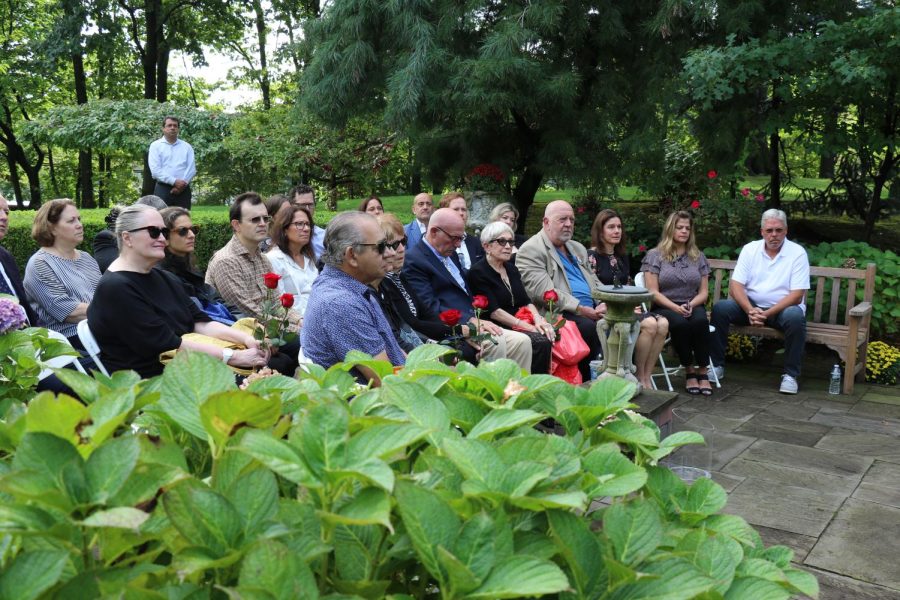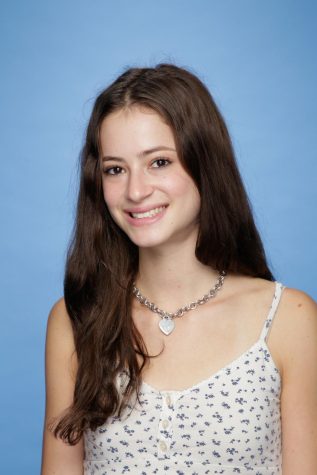Poly Memorial Shifts From Commemoration to Education
November 4, 2022
The Poly Prep community will never forget the tragedies of September 11, 2001. Twenty-one years after the attacks, the 9/11 commemoration at Poly has been redesigned. This year, the 9/11 memorial service did not include all students and faculty gathering in the Memorial Garden, as done every other year. Instead, teachers were asked to discuss the events during their first-period classes on Monday, September 12.
Head of School Audrius Barzdukas, amongst other administrators, advised the decision to redefine how Poly commemorates 9/11. “Various administrators, we were asking ourselves ‘how can we make that time more meaningful for students?’” said Barzdukas. “Fifth graders are very different than 18-year-olds… different levels of maturity, and so what we wanted to do is figure out, how do we help all of our students get a greater appreciation for the events of 9/11?”
Upper School History Department Chair Maggie Moslander sent an email to faculty asking teachers to help facilitate a classroom discussion during the first period on Monday, September 12. She provided a link to “a variety of essential questions and resources for teaching about the history of 9/11 in your G-block classes,” as detailed in the email.
The resources were to help teachers engage in discussions about 9/11 but ultimately left them to present the topic as they saw fit. “[Teachers] could be the best judge of what made the most sense for their particular class,” said Moslander. “The goal of the resources was basically [to] give lots of options for teachers and lots of sort of pathways to talk about 9/11,” she said.
Challenges were present in the previous year’s ceremonies, where the entire student body would gather in the memorial garden. “You got to get 1,000 people to walk out there. It’s about a 15-20 minute ceremony. It’s very meaningful. Powerful. You have to get 1,000 people to walk back,” said Barzdukas. “Kids in the back couldn’t hear. Or see. So they just sit standing out there because they’re little, looking at the back of somebody’s shirt.” Referring to the annual speech he gives during the ceremony, “I got feedback that my comments sometimes were a little vague in general,” he said.
This year’s memorial service still occurred and was intended for the families of the ten alumni and one Poly parent who died. After the gathering in the Memorial Garden on the northeast corner of the Dyker Heights campus, the group went to the Malkin Terrace. “We had a very nice event, very personal. It was very personal for them, for the families this year,” said Barzdukas.
Director of Service Learning and history teacher Elijah Sivin was present on the Dyker Heights campus during the attacks and attended this year’s ceremony. “The elements [of the ceremony] that are the same were the location, the scholars naming the person that they scholarshipped the name of, and the fact that there was some singing,” said Sivin.
The 9/11 student memorial scholars are current students who each represent the life and attributes of a member of the Poly community who perished. Scholars and their parents were also invited to this year’s ceremony. Student Scholar Maeve Igoe ’23, who attended, said, “Normally it’s a whole school thing and everyone gathers together as a community but this year it kinda just felt like we were on the side, like it wasn’t a part of the school day.”
Currently, at Poly, no students are old enough to have lived through the attacks of 9/11. Michael Gabriel ’24 witnessed the ceremony from an outside viewpoint. “I knew [Poly] had to be doing something. I had a free. I was dressed up nice. So I just decided to walk over to the garden to see what’s happening,” he said. “I think I thought it was important to go because my dad was a classmate of one of the victims…Even though obviously all of us students in school were born after, I always thought it’s an important thing for us to just at least pay respects.”
With classroom discussions within teachers’ subjectivity, students experienced commemoration this year differently from one another. “There was a brief mention of 9/11 in my classes, but nothing much really past a couple short conversations,” said Alba Niccolai ’24. Students like Michael Gabriel, who did not have a first-period class on that day, may not have engaged in a classroom discussion about 9/11.
Administrators of private institutions are obliged to choose how they want the commemoration of a historical event to look within the community. “I think it’s a really hard question when and how you commemorate things; at some point we stopped commemorating Pearl Harbor here. We stopped commemorating V-E day,” said Moslander.
Barzdukas also draws a comparison to the commemoration of Pearl Harbor. “Pearl Harbor, December 7, our nation was attacked. We teach it, but we stopped having memorial services for it,” he said.
Poly Prep is among other private schools that are left to decide how to commemorate 9/11 in their institutions. Sivin also contemplates the decision Poly must make about when it is time to stop having student memorial services. “I think the school has a difficult choice because, you know, we don’t commemorate the war of 1812 the way they did in 1813…time moves on, you know, events fade in their significance,” he said.













































